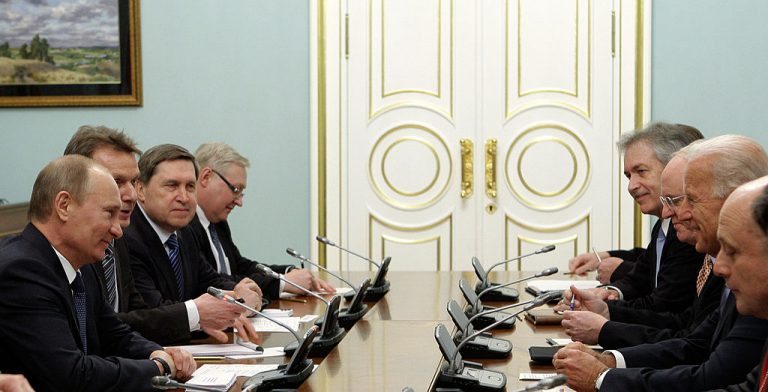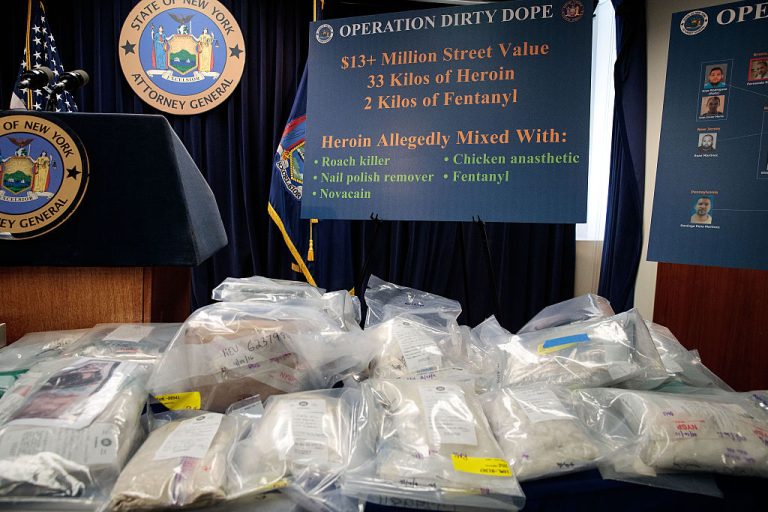The U.S. National Intelligence Council (NIC), a group composed of seven different intelligence organizations, has said Russia sought to defame President Joe Biden and his family during the U.S. Presidential Elections, according to a report on 2020 federal election interference released March 10, drawing the President’s ire in an interview with ABC on March 17.
“[Putin] will pay a price. I, we had a long talk, he and I, when we — I know him relatively well. And I– the conversation started off, I said, ‘I know you and you know me. If I establish this occurred, then be prepared,’” said Biden when asked about the NIC’s assessment.
The NIC made public on March 10 an Intelligence Community Assessment (ICA) entitled “Foreign Threats to the 2020 US Federal Elections,” which also said Iran and smaller socialist states such as Cuba and Venezuela sought to undermine Donald Trump, and that the Chinese Communist Party (CCP) didn’t care who won, would cooperate with anyone, and thus took a passive role in the elections.
ABC interviewer George Stephanopolous asked Biden “So you know Vladimir Putin. You think he’s a killer?” to which Biden replied, “Uh-huh. I do.” Stephanopoulos followed up with the question “So what price must he pay?” Biden’s response: “The price he’s gonna pay we’ll– you’ll see shortly…He’s been — they’ve done some mischievous things, to say the least. And so we’re gonna have — I’m not gonna announce what I’m doing, but he’s gonna understand that…it’s not free.”
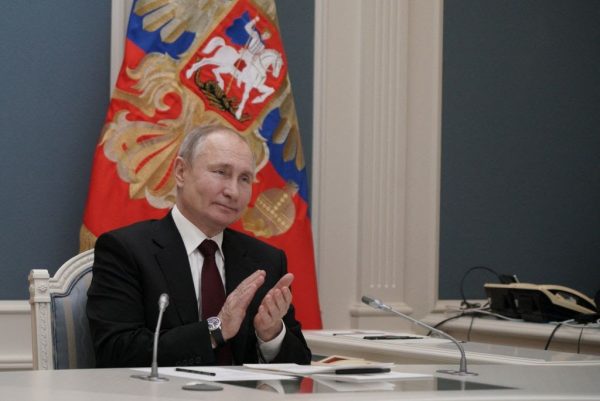
Later in the day, the Kremlin recalled its Ambassador to the United States, Anatoly Antonov, “On March 20, Ambassador of Russia to the United States Anatoly Antonov is leaving for Moscow for consultations. During his meetings in the Russian Ministry of Foreign Affairs and other agencies, it is planned to discuss ways to rectify Russia-U.S. ties that are in crisis,” said the Russian Embassy in a statement.
Success
You are now signed up for our newsletter
Success
Check your email to complete sign up
“The current situation is a result of the deliberate policy of Washington that during the past years was making steps to bring — in essence, intentionally — our bilateral interaction into a deadlock.”
The following day, Vladimir Putin gave a response through Russian news agency TASS, “As far as statements by my U.S. counterpart are concerned. What would I say to him in response? I would tell him: ‘Be healthy!’ I wish him good health.” TASS added Putin “really meant what he was saying without a pinch of irony.”
Putin said of U.S.-Russia relations, that America has “Quite a few honest, decent and warm-hearted people…We are aware of that, and we value that, and we will rely on them in the future.”
“As for the U.S. [political] establishment, the ruling class, its consciousness was shaped in a well-known and rather difficult environment…The U.S. authorities in general seek certain relations with us but only in areas the U.S. [is] interested in, and on their own terms,” he said.
Vladimir Putin upped the ante on March 19 when he challenged Biden to a live, no-delay debate in an interview with Russian state television, “I want to propose to President Biden to continue our discussion, but on the condition that we do it basically live, as it’s called. Without any delays and directly in an open, direct discussion. It seems to me that would be interesting for the people of Russia and for the people of the United States.”
President Biden did not respond to Putin, instead having Press Secretary Jen Psaki handle questions about the debate during a press conference, where she said the Whitehouse does not “have anything to report to you in terms of a future meeting. The President will, of course, be in Georgia tomorrow and quite busy.”
Intelligence Community pins the tail on Russia
The NIC Report was in response to Donald Trump’s 2018 Executive Order 13848, which requires national intelligence to provide an assessment of whether foreign countries have interfered in a federal election within 45 days of the completion of an election. Based on the required timeline, the report was due on Dec. 18, 2020, but was not released to Donald Trump until Jan. 7, 2021, the day after the Capitol riots.
The report makes a distinction between election influence and election interference. It defines influence as “overt and covert efforts by foreign governments or actors acting as agents…intended to affect directly or indirectly a U.S. election,” and interference as “a subset of election influence activities targeted at the technical aspects of the election, including voter registration, casting and counting ballots, or reporting results.”
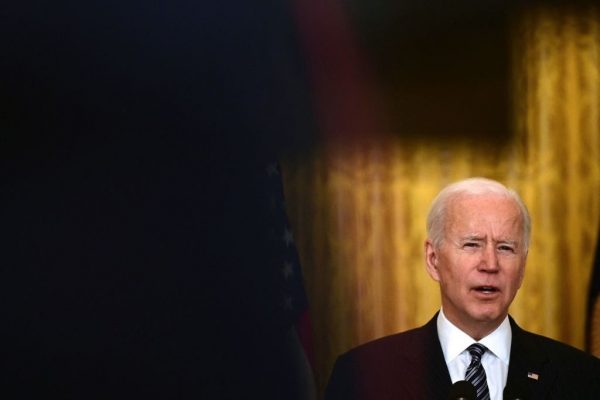
The NIC assessed no foreign entity attempted to interfere in the U.S. election by “altering any technical aspect of the voting process, including voter registration, ballot casting, vote tabulation, or voting results.”
When it comes to Russia, U.S. intelligence asserted that the Putin and the Kremlin “conducted influence operations against the 2020 U.S. presidential election aimed at denigrating President Biden and the Democratic Party, supporting former President Trump, undermining public confidence in the electoral process, and exacerbating sociopolitical divisions in the U.S.”
According to the report, “The primary effort the IC uncovered revolved around a narrative–that Russian actors began spreading as early as 2014–alleging corrupt ties between President Biden, his family, and other U.S. officials and Ukraine,” apparently referencing the Hunter Biden scandal, as the report adds “In 2019 GRU [Russian Armed Forces] cyber actors conducted a phishing campaign against subsidiaries of Burisma holdings, likely in an attempt to gather information related to President Biden’s family and Russia.”
The IC assessment continues, “Russian state media, trolls, and online proxies, including those directed by Russian intelligence, published disparaging content about President Biden, his family, and the Democratic Party, and heavily amplified related content circulating in U.S. media, including stories centered on his son.”
“These influence actors frequently sought out U.S. contributors to increase their reach into U.S. audiences. In addition to election-related content, these online influence actors promoted conspiratorial narratives about the COVID-19 pandemic, made allegations of social media censorship, and highlighted U.S. divisions surrounding protests about racial justice.”
The assessment also says Russia’s “online influence actors” were the ones promoting Donald Trump and allegations the 2020 election suffered from widespread fraud.
Beijing thought interference ‘not worth the reward’
In the report, the IC says Beijing “considered but did not deploy influence efforts intended to change the outcome of the U.S. presidential election,” adding “Beijing probably judged the risk of interference was not worth the reward” and that “Beijing believes there is a bipartisan consensus against China in the United States that leaves no prospect for a pro-China administration regardless of the election outcome.”
However, the National Intelligence Officer (NIO) for Cyber was given approximately one third of a page in the 15 page report to present a dissenting “Minority View” on the position that the CCP did not care who won the U.S. election and played virtually no role. The NIO for Cyber assessed “China at least took some steps to undermine former President Trump’s chances, primarily through social media and official public statements and media,” adding “The NIO agrees that we have no information suggesting China tried to interfere with election processes. The NIO has moderate confidence in these judgments.”
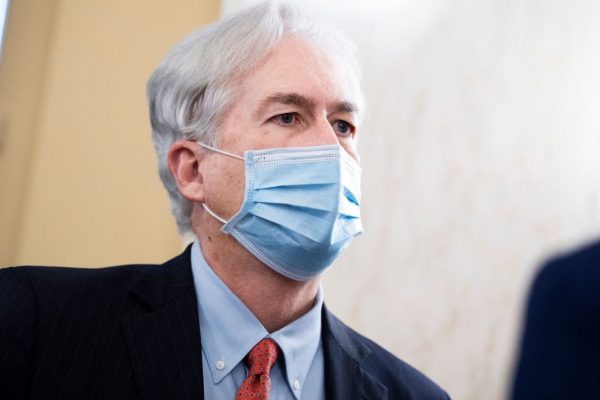
“This view differs from the IC assessment because it gives more weight to indications that Beijing preferred former President Trump’s defeat and the election of a more predictable member of the establishment instead, and that Beijing implemented some–and later increased–its election influence efforts over the summer of 2020.”
“The NIO assesses these indications are more persuasive than other information indicating that China decided not to intervene. The NIO further assesses that Beijing calibrated its influence efforts to avoid blowback.”
In January, Director of National Intelligence (DNI), John Ratcliffe, said he does not believe the “majority view expressed by Intelligence Community (IC) analysts fully and accurately reflects the scope of the Chinese government’s efforts to influence the 2020 U.S. federal elections,” in a letter to Congress.
Ratcliffe included in his letter a report from IC Analytic Ombudsman Barry Zulauf. Zulauf said in his assessment, “China analysts were hesitant to assess Chinese actions as undue influence or interference. These analysts appeared reluctant to have their analysis on China brought forward because they tend to disagree with the [Trump] administration’s policies, saying in effect, I don’t want our intelligence used to support those policies.”
The DNI said “alternative viewpoints on China’s election influence efforts have not been appropriately tolerated, much less encouraged” and Zulauf found “strong efforts to suppress analysis of alternatives” including actions by CIA management to “downplay alternative analyses in their own production” and “pressuring [analysts] to withdraw their support” for the determination the CCP sought to influence the 2020 election.
‘No evidence’ of foreign election interference in the 2020 voting process
A separate joint report by the Department of Justice and Department of Homeland Security, also required by Executive Order 13848, said they found “no evidence that any foreign government-affiliated actor prevented voting, changed votes, or disrupted the ability to tally votes or to transmit election results in a timely manner; altered any technical aspect of the voting process; or otherwise compromised the integrity of voter registration information of any ballots cast during 2020 federal elections.”
They added, “We are aware of multiple public claims that one or more foreign governments—including Venezuela, Cuba, or China—owned, directed, or controlled election infrastructure used in the 2020 federal elections; implemented a scheme to manipulate election infrastructure; or tallied, changed, or otherwise manipulated vote counts,” concluding they had “investigated the public claims and determined that they are not credible.”
“We have no evidence—not through intelligence collection on the foreign actors themselves, not through physical security and cybersecurity monitoring of voting systems across the country, not through post-election audits, and not through any other means—that a foreign government or other actors compromised election infrastructure to manipulate election results,” said the five-page document before providing a series of recommendations such as “Physical Security and Cyber Hygiene” to shore up future elections.
Follow us on Twitter or subscribe to our email list



